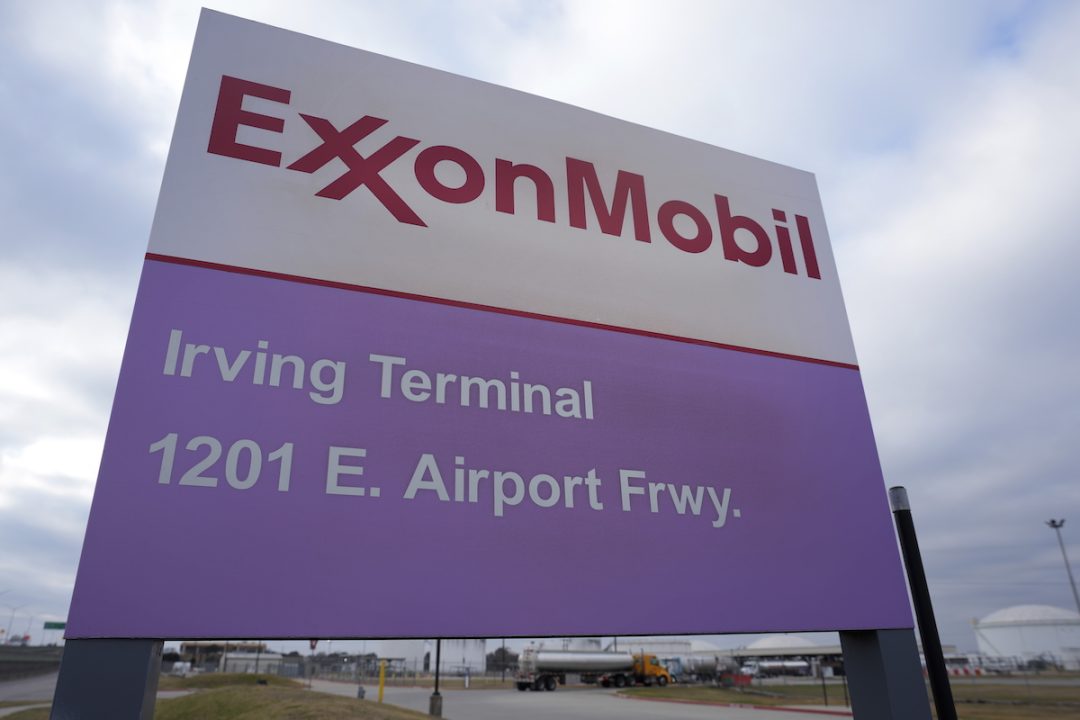
On Friday, the House Judiciary Committee released a report purporting to show evidence of what it called a “climate cartel” of money managers that used coercion and pressure tactics to make an energy company bow to their wishes on climate change. The report claims to show evidence of how some of the world’s largest financial institutions colluded with climate activist groups to make ExxonMobil replace board members who refused to commit to reducing fossil-fuel production.
The Report
The report “Sustainability Shakedown: How a Climate Cartel of Money Managers Colluded to Take Over the Board of America’s Largest Energy Company,” reportedly found “substantial evidence of collusion and anticompetitive behavior” by the financial industry to “impose radical ESG-goals” on oil companies in the United States.
The so-called Big Three asset managers — BlackRock, The Vanguard Group, and State Street Global Advisors — along with blue state pension managers colluded with Glasgow Financial Alliance for Net Zero (GFANZ), the Net Zero Asset Managers initiative (NZAM), Ceres, and Climate Action 100+ and others to force energy companies, most notably ExxonMobil, to remove intransigent board members and replace them with puppets who would bow to “net zero” climate commitments and shrink the fossil-fuel sector.
ExxonMobil was apparently the cartel’s most prominent target.
“The climate cartel branded ExxonMobil as a ‘focus company’ on its climate blacklist, grading it against a ‘net-zero’ benchmark and signaling investors to organize a barrage of shareholder pressure campaigns — more than any other company in the world,” the report stated.
The committee found that the cartel used nefarious tactics to force ExxonMobil into making unnecessary and sometimes specious disclosures.
“Through ‘name and shame’ engagements, the climate cartel demanded that ExxonMobil make immaterial climate disclosures that ‘obscure material information’ by ‘distort[ing] markets’ with speculative, climate-related guesswork.”
The “cartel” attempted to force unrealistic climate goals on ExxonMobil via unreasonable and potentially ruinous emission-reduction targets.
“The climate cartel launched ‘Trojan Horse’ campaigns, calling for emission reduction ‘targets’ that require steep declines in ExxonMobil’s production and use of affordable, carbon-based energy.”
Disappeared
When those measures failed to make ExxonMobil board members give in fully to the climate agenda, the “cartel” decided they had to make those stubborn board members disappear.
“When ExxonMobil refused to surrender to its ‘net-zero’ demands, the climate cartel colluded to ‘vote no’ against its board of directors to ‘show that engagement can have teeth — and that investors are willing to escalate pressure against companies that refuse to act.’”
In the words of climate zealot Anne Simpson of Climate Action 100+: “Exxon’s board
members should have hell to pay.”
The Biden administration was instrumental to the alleged “climate cartel’s” plans — especially climate “czar” John Kerry.
“The Biden-Harris Administration emboldened and recruited investors for the climate cartel. In early 2021, the climate cartel ‘look[ed] to capitalise on the momentum created by the [Biden-Harris Administration’s] … climate policy,’” the report said. “In particular, the Biden-Harris Administration’s Special Presidential Envoy for Climate, John Kerry, ‘help[ed] recruit investors for’ Ceres, an activist nonprofit organization and leading member of the climate cartel.”
Example
Allegedly, the “cartel” used what happened to ExxonMobil as an example to other corporations tempted to drag their feet on climate action.
The climate cartel “continues to leverage what it calls ‘[t]he Exxon effect’ — that is, ‘the idea that this could happen to you’ — to pressure other U.S. companies to surrender to its ‘net-zero’ climate agenda.”
“Unfortunately, the pressure campaign against ExxonMobil is not an isolated incident,” a press release from the Judiciary Committee said. “The climate cartel remains resolved to continue its climate crusade, pressuring U.S. companies to stop producing the affordable energy Americans need. Through coordinated shareholder pressure campaigns at U.S. companies, the climate cartel seeks to use the trillions of dollars it manages to impose its agenda on the U.S. economy and drain it of affordable energy.”
If what the House Judiciary Committee report says is true, the climate zealots mentioned in the report not only acted in contravention of investor interest and anti-trust laws. They acted more like mafia members threatening American companies to capitulate to climate zealot demands or pay the consequences.
ESG Failure
As it is, the push to enshrine ESG investing appears to be failing. Recently, Goldman Sachs became the latest high-profile financial company to bolt from a climate focused group when it announced it was leaving the UN-backed Net Zero Asset Managers initiative (NZAM).
A spokesperson for the climate group Climate Action 100+ called the accusations in the report “completely false,” and added that it “doesn’t control how shareholders vote, nor has it ever done so.”
But as the House Judiciary investigation, along with state pushback, appears to show, many are strongly opposed to ESG as an investment scheme. The climate movement’s attempt to strong-arm climate action into existence at the financial level appears to be failing.




